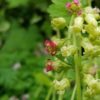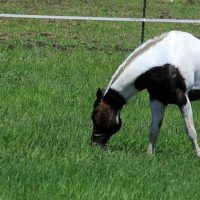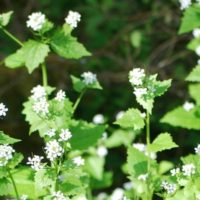The Clackamas Soil and Water Conservation District offers a wide range of support for horse owners in Clackamas County. The following horse pasture video gives you a good idea of some of the […]

From the Natural Resources Conservation Service:
Soil health, also referred to as soil quality, is defined as the continued capacity of soil to function as a vital living ecosystem that sustains plants, animals, and humans. This definition speaks to the importance of managing soils so they are sustainable for future generations. To do this, we need to remember that soil contains living organisms that when provided the basic necessities of life – food, shelter, and water – perform functions required to produce food and fiber.
Only “living” things can have health, so viewing soil as a living ecosystem reflects a fundamental shift in the way we care for our nation’s soils. Soil isn’t an inert growing medium, but rather is teaming with billions of bacteria, fungi, and other microbes that are the foundation of an elegant symbiotic ecosystem. Soil is an ecosystem that can be managed to provide nutrients for plant growth, absorb and hold rainwater for use during dryer periods, filter and buffer potential pollutants from leaving our fields, serve as a firm foundation for agricultural activities, and provide habitat for soil microbes to flourish and diversify to keep the ecosystem running smoothly.

The Clackamas Soil and Water Conservation District offers a wide range of support for horse owners in Clackamas County. The following horse pasture video gives you a good idea of some of the […]

The Clackamas Soil and Water Conservation District offers an Equipment Rental Program which makes a variety of agricultural equipment available at reasonable prices to Clackamas County residents. Now that the fall and winter […]

The Clackamas Soil and Water Conservation District offers a wide range of support for horse owners in Clackamas County. The following horse pasture video gives you a good idea of some of the […]

As dry summer days give over to autumn rains, pasture grasses experience new root growth and work to store carbohydrates in the lower 3-4 inches of the stem. Anything that hinders these two […]

Registration for Small Farm School 2024 is now open. Click here to register! Small Farm School is a one-day educational event for beginning and intermediate small-scale farmers and rural land stewards. This year […]

The Clackamas Soil and Water Conservation District offers a wide range of support for horse owners in Clackamas County. The following horse pasture video gives you a good idea of some of the […]

The 2024 Native Plant Sales are in full swing. While the Clackamas Soil and Water Conservation District doesn’t host a native plant sale, many of our local districts do. And if you don’t […]

The Clackamas Soil and Water Conservation District has added a new no-till drill to it’s collection of farm implements available to local agricultural producers through the Equipment Rental Program. The District had two […]

As dry summer days give over to autumn rains, pasture grasses experience new root growth and work to store carbohydrates in the lower 3-4 inches of the stem. Anything that hinders these two […]
 We are Hiring for Multiple WeedWise Technicians!
Jan 31, 2025
We are Hiring for Multiple WeedWise Technicians!
Jan 31, 2025
 Mud, Manure, Horse Pasture Management Workshop Series
Mar 27, 2025
Mud, Manure, Horse Pasture Management Workshop Series
Mar 27, 2025
 Forest Weed Management Field Day
Mar 12, 2025
Forest Weed Management Field Day
Mar 12, 2025
 Notice of Budget Committee Meeting
Mar 17, 2025
Notice of Budget Committee Meeting
Mar 17, 2025
 Spring Pasture Management Video
Mar 17, 2025
Spring Pasture Management Video
Mar 17, 2025
 District Supports 2025 Farmers Markets
Mar 26, 2025
District Supports 2025 Farmers Markets
Mar 26, 2025
 Proposed Budget Released for FY 2025-2026
Mar 27, 2025
Proposed Budget Released for FY 2025-2026
Mar 27, 2025
 April Invasive Weed of the Month: Garlic Mustard
Apr 1, 2025
April Invasive Weed of the Month: Garlic Mustard
Apr 1, 2025
No items, feed is empty.
